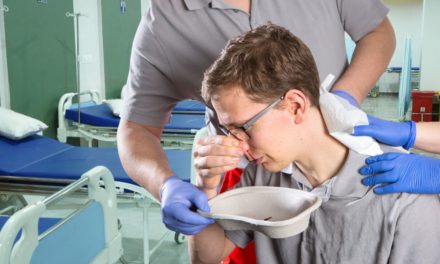Introduction
Depression is a mental condition that affects millions of people worldwide. It can manifest in different forms and intensities, affecting a person’s emotional, physical and social well-being. Understanding the symptoms of depression and seeking appropriate treatment is critical in helping people regain control of their lives and promote mental well-being. In this article, we’ll explore the symptoms of depression, its possible causes, and evidence-based treatment methods to offer hope and support to those going through the darkest moments of depression.
Understanding Depression
Depression, also known as major depressive disorder (MDD), is a mental health condition characterized by persistent feelings of sadness, loss of interest or happiness, and lack of motivation. It can affect people of all ages and backgrounds, and if left untreated, depression can significantly affect daily life and functioning.
Recognizing the symptoms of depression
Symptoms of depression vary from person to person, but common symptoms include:
- A persistent feeling of sadness or emptiness
- Loss of interest in previously enjoyable activities
- Changes in appetite or weight
- Sleep disturbances, such as insomnia or oversleeping
- Fatigue and lack of energy
- A sense of worthlessness or excessive guilt
- Difficulty concentrating or making decisions
- Thoughts of death or suicide
Possible causes of depression
The underlying cause of depression is complex and often involves a combination of biological, psychological, and environmental factors.
Common causes and risk factors may include:
- Family history: People with a family history of depression are at a higher risk of developing the disease.
- Brain chemistry: Imbalances in certain neurotransmitters, such as serotonin and dopamine, can lead to depression.
- Stressful life events: Traumatic experiences, the loss of a loved one, or major life changes can trigger depressive episodes.
- Chronic medical conditions: Certain health conditions, such as chronic pain or hormonal imbalances, can be linked to depression.
Treatment methods for depression
Depression is a treatable condition, and several effective methods can help people manage and recover from it:
Psychotherapy: Cognitive-behavioral therapy (CBT), talk therapy, and other forms of psychotherapy can help individuals identify negative thought patterns and develop coping strategies.
Medication: Antidepressant medications, such as selective serotonin reuptake inhibitors (SSRIs) and serotonin-norepinephrine reuptake inhibitors (SNRIs), can help balance brain chemistry.
Lifestyle changes: Engaging in regular exercise, maintaining a balanced diet, and incorporating stress reduction techniques can support overall mental health.
Support groups: Connecting with others who have experienced or are dealing with depression can provide valuable support and encouragement.
Electroconvulsive therapy (ECT): In severe cases where other treatments are not effective, ECT may be considered.
Seeking help and support
If you or someone you know is experiencing symptoms of depression, it is important to seek professional help from a mental health provider. Early intervention can lead to better outcomes, and a health care professional can recommend appropriate treatment options based on an individual’s needs.
Emphasis on self-care
In addition to seeking professional help, practicing self-care is vital in managing depression. Engaging in pleasurable activities, spending time with loved ones, and prioritizing mental health can all contribute to the recovery process.
Result
Depression is a serious and widespread mental health condition that can affect every aspect of a person’s life. By recognizing the symptoms and seeking appropriate treatment, individuals can take steps toward regaining their emotional well-being and quality of life. Understanding possible causes and risk factors can also help individuals develop proactive strategies to effectively manage depression. Remember, seeking professional help and support is a sign of strength, and no one should face depression alone. By fostering an environment of compassion, understanding, and acceptance, we can create a world where individuals feel safe and empowered to seek help, overcome depression, and embrace a brighter future.










